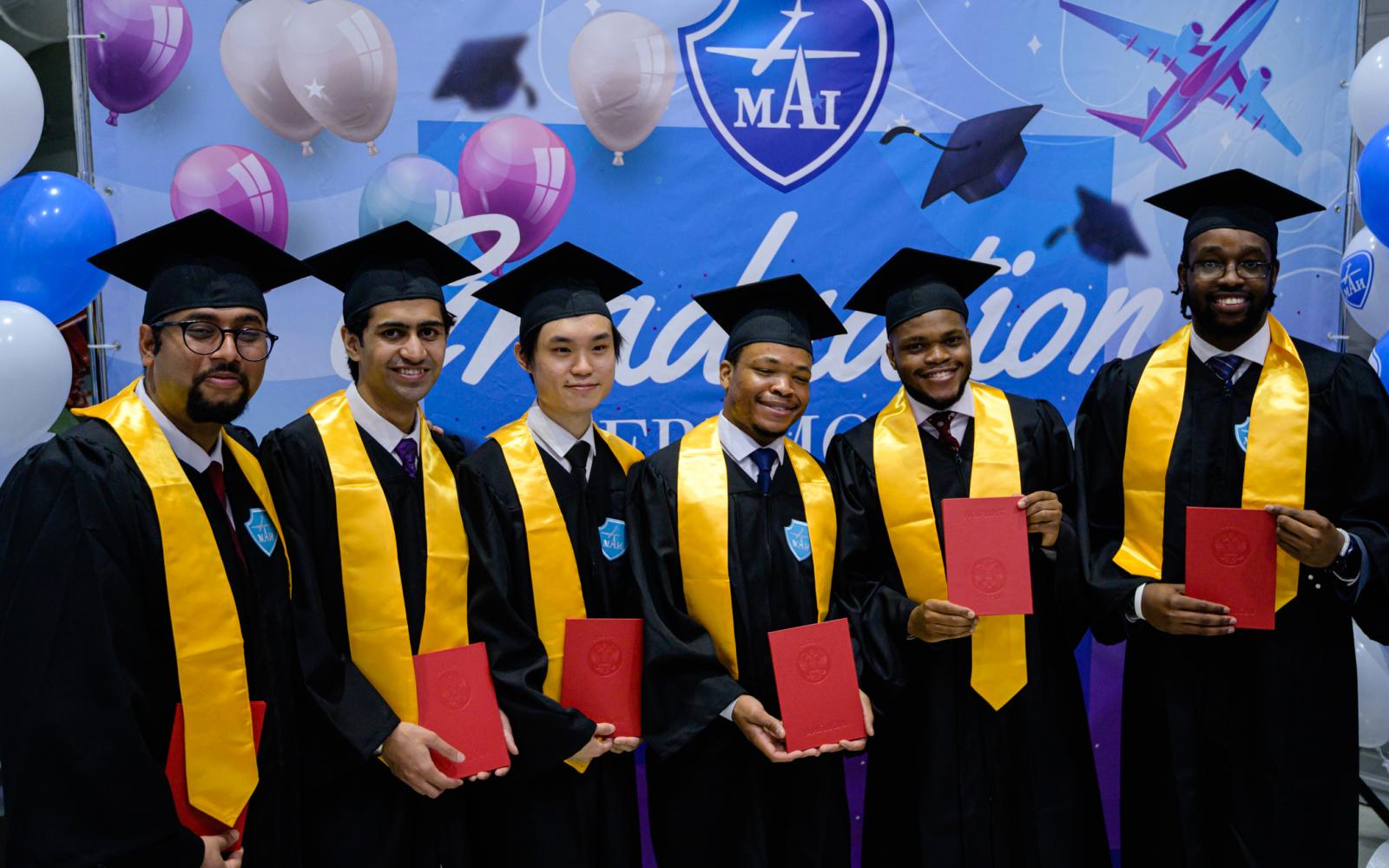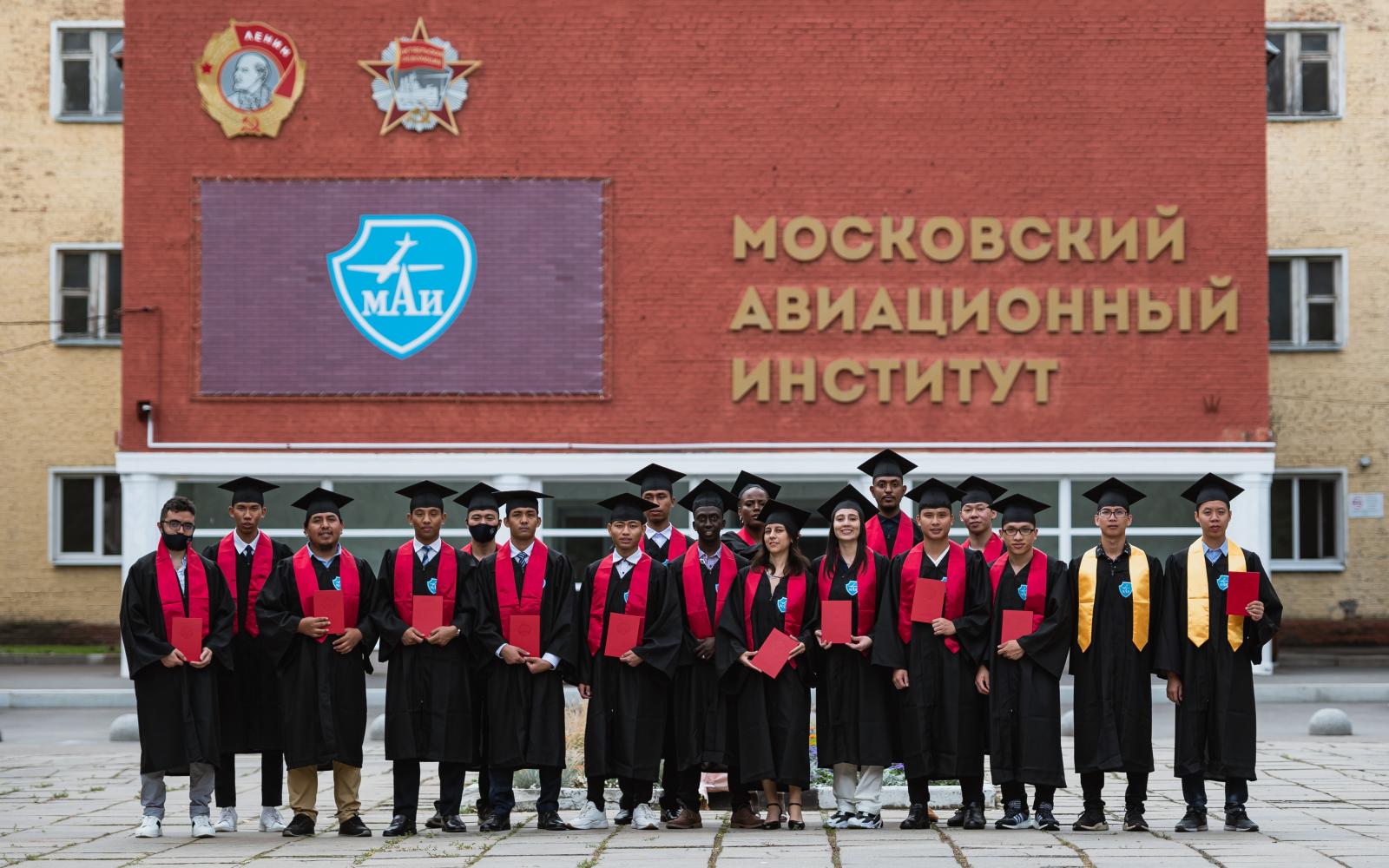Ad astra

Space systems and rocket science are among the most popular courses with foreign applicants in MAI.
Most foreigners think about Russian education in order to obtain competencies that will help them fulfill their professional plans and implement big ideas in future. Many of them choose Moscow Aviation Institute – today 1,772 foreign students study at the university, 1,641 of them enrolled to the main educational programs of bachelor's, master's and profession – both English-speaking and Russian-speaking.
Graduate student of the Institute No. 9 “General Engineering” Aamer Sheriff told “Oblako” how foreigners aiming at aerospace professions choose a university, and shared his own experience.
Aamer Sheriff is doing postgraduate studies at the Department 903 “Advanced Materials and Technologies for Aerospace” and teaches pre-university courses at MAI. His dream is to help large companies in space research, travel and Mars exploration. Therefore, he opens his own company in India for the production of rocket parts and plans to deal with modules for extraterrestrial habitat.
Choosing direction
As a child, Aamer was fond of “Star Wars” and from the very early age was interested in space. Now he is studying various aerospace technologies at MAI and dreams of making interstellar flights one day and traveling outside the Solar System.
– The time has come for space adventures far away from Earth, – he says.
In 2016, Aamer was choosing a university for a master's degree and found the office of the Federal Agency Rossotrudnichestvo in India, where they explained to him how to enroll to MAI. Aamer knew that the countries cooperate closely for missile development and testing, and was determined to go to Russia. In addition, familiar experts and fellow students from internships recommended MAI strongly to him.
In 2015, MAI launched popular programs in English in “Aircraft Engineering”, “Rocket Engineering”, “Engine Building” and “Control Systems, Computer science and computer engineering”, thereby providing foreign experts with access to Russian best practices and experience. To date, English-speaking bachelor's and master's degree programs have more than 550 first-year students. In the near future, it is planned to launch IT and aviation equipment operation educational programs.

– For many decades, Russian scientists were pioneers in space, but for a long time Russia's cooperation with foreign research institutes and industrial companies was extremely limited. When the so-called Iron Curtain collapsed in the early 1990s, everyone else had a unique chance to study the approaches of Russian engineers. Domestic engineering schools with a rich and unique scientific background began to open up to the world space and scientific community. Since then, the Russian approach to research and education, initially based on Soviet traditions, has been modernized, which has made Russian technical education even more attractive to foreign students and researchers, – says the graduate student.
MAI
– I studied the education market carefully and found out that MAI is one of the few engineering universities where the main subjects are connected with rocket science and each discipline is aimed at developing professional competencies, – Aamer recalls the search for master's courses. — The training programs, of course, played the main role, and I decided to study rocket science in Moscow.
It was exciting and extremely difficult to enter the magistracy of a foreign country, but the education was worth it. He did not regret his choice: the quality of MAI programs and unique experience of studying abroad contributed to the development of professional skills and ambitions of a graduate student. Together with his classmates, Aamer became one of the first students of the English-speaking master's degree in “Rocket Science”.
Rocket engines production
In his second year of study, during the summer holidays, Aamer got a job at the branch of the German aerospace center Deutsches Zentrum für Luft und Raumfahrt (DLR) in Meckmuhl, where he was engaged in calculating emission factors from rocket nozzles. As it turned out, almost 50% of his colleagues, including the director of the department, are graduates of the Russian programs of MAI.
With Anmol Khan and Georgy Jagtap, who also graduated from MAI, Aamer is now working on his startup. They are engaged in the production of rocket parts as private contractors. The graduates plan to produce modules for the extraterrestrial habitat. They dream of helping such large companies as ISRO (Indian Space Research Organization) and Roscosmos in research, space travel and Mars exploration.
Aamer Sheriff is also working at MAI on a PhD thesis in ballistics and orbital mechanics. The work is devoted to the improvement of reusable upper stages of rockets. The project is designed to facilitate their launches within a given period of time and significantly reduce costs and increase efficiency.
– Today MAI focuses on creating a completely new environment for international students. We focus on merging the boundaries between Russian-speaking students and students who speak other languages. The Department of International Activities systematizes the work on the integration of foreign students into the student community mainly through extracurricular activities, attracting foreigners to participate in the activities of the volunteer center, the MAI trade union and sports events, – comments Alexey Zarechensky, Deputy Head of the department.
New approaches are introduced into educational programs with shift towards individualization and increase in the number of continuing education students – that is, students who undergo complete educational cycle at MAI from the faculty of pre-university training to postgraduate studies. In addition, the content of programs for international students is also regularly updated according to current market trends and the HR forecast.